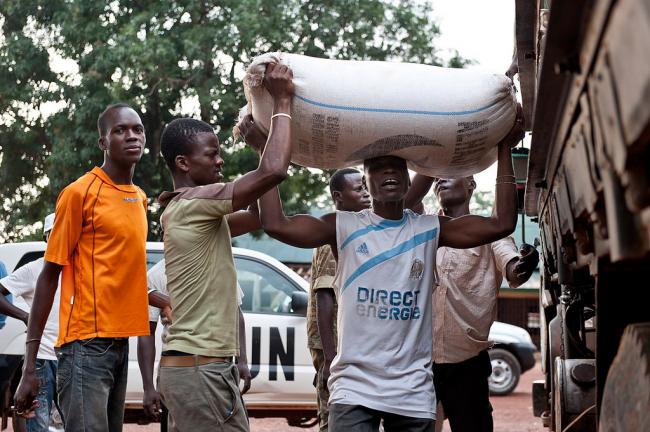23 Jan 2015

In today’s unanimously adopted resolution, the 15-member Council expressed ‘grave concern’ at the continuing destabilization of the CAR by armed groups, warning that the situation poses ‘a permanent threat to the peace, security and stability of the country’ while also constituting a threat to international peace and security in the region.
The Council renewed a series of sanctions targeting all individuals involved in undermining ‘the peace, stability and security of the CAR,’ calling on all Member States to maintain a series of measures, including an arms embargo, travel ban and asset freeze which would continue until 29 January 2016.
More than two years of civil war and sectarian violence have displaced thousands of people in the CAR amid continuing clashes between the mainly Muslim Séléka alliance and anti-Balaka militia, which are mostly Christian.
Among the severe concerns afflicting the country, noted the Council, is the ‘continuous cycle of provocations and reprisals by armed groups,’ repeated human rights violations, including extrajudicial killings, enforced disappearances, arbitrary arrests, sexual violence, and the denial of humanitarian access to the thousands of people affected by the worsening security conditions.
According to UN estimates, nearly 440,000 people remain displaced inside the country while some 190,000 have sought asylum across the borders. At the same time, more than 36,000 people – including the Peuhl ethnic group – remain trapped in enclaves across the country, hoping to find asylum in neighbouring States.
On that note, the Council Members stressed the ‘urgent and imperative’ need to end impunity in the CAR and reiterated the need for all perpetrators of violent acts to be held accountable, noting that some acts “may amount to crimes” under the Rome Statute of the International Criminal Court (ICC).
On Wednesday at UN Headquarters in New York, the Council mandated team of investigators warned that war crimes are being committed in the CAR and called for the establishment of a ‘truly international’ tribunal with international judges who could objectively investigate and prosecute perpetrators of such crimes in the war torn country.
On Monday, UN ‘blue helmets’ captured Rodrigue Ngaibona, leader of the anti-Balaka militia, in the Organization’s first high-profile arrest of 2015.
Since September 2014, the UN integrated stabilization Mission, known by its French acronym, MINUSCA, has arrested over 200 individuals in its support to the CAR authorities to maintain rule of law.
Nonetheless, the situation in the country remains tenuous, with Under-Secretary-General for Peacekeeping Operations, Hervé Ladsous, recently warning that the atmosphere in the Central African Republic was potentially explosive.
UN Photo/Catianne Tijerina